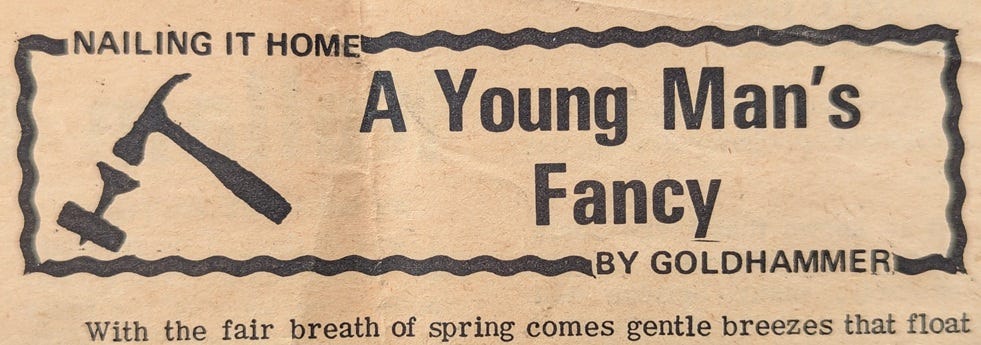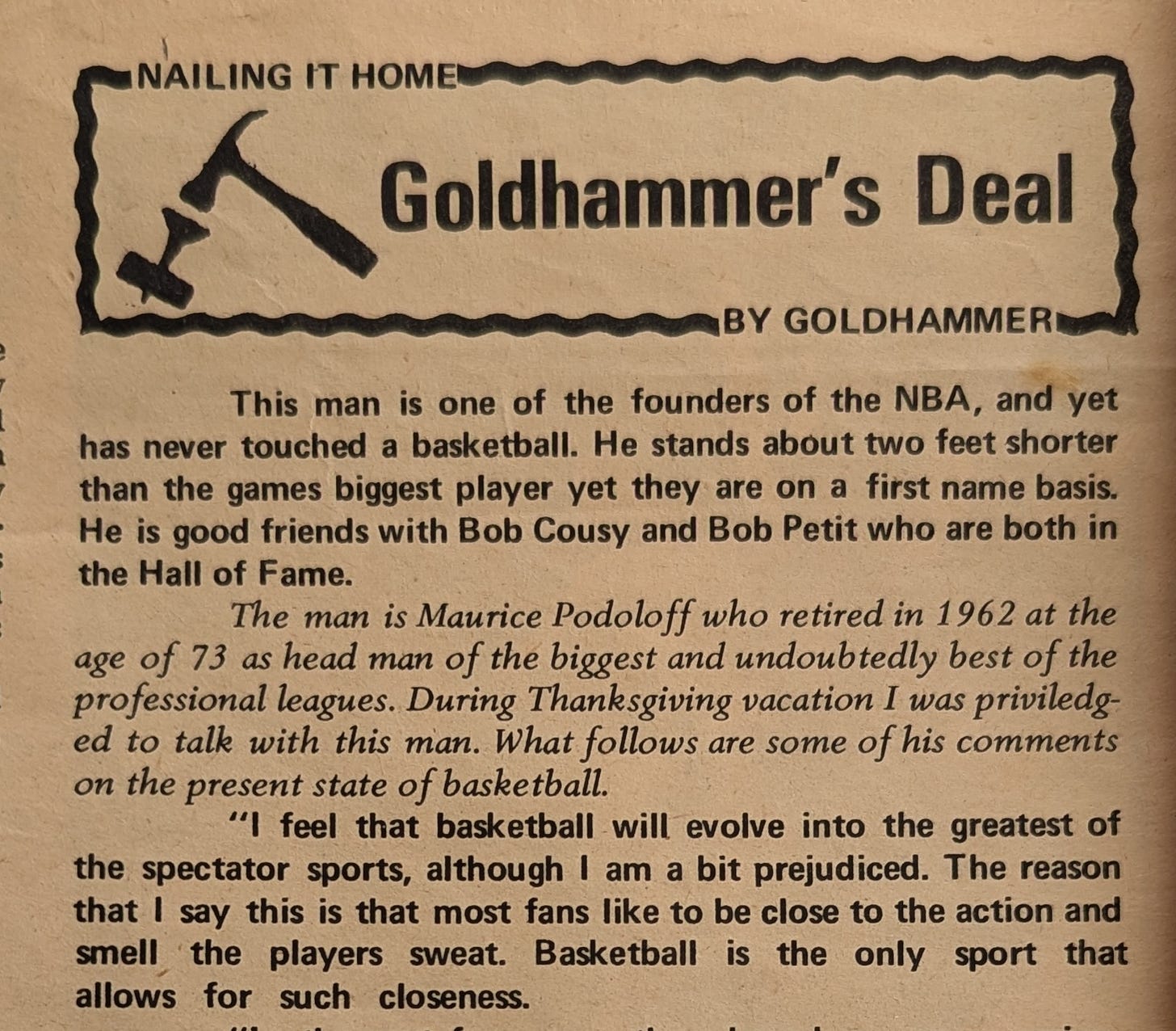This Substack will be a refuge from the Sturm und Drang swirling about the United States right now. Politics and policy have been a longstanding interest of mine, but there are countless Substack writers who are doing excellent work. I don’t think I am in a position to add much to their ongoing discussions other than as a regular commenter. Rather, I will be writing about a variety of eclectic interests that may be appealing to a general audience. I may go back and revisit some COVID-19 issues that I covered in my daily newsletter in 2020. The lab leak hypothesis has always been an interest of mine and I have some definite views on this.
I am starting this series of posts to talk about good writing. Communication, whether verbal or written, is a critical tool that is increasingly overlooked today with the development of AI tools. You can be assured that this and subsequent essays will use no AI tools other than the spell checker that comes with Microsoft Word (to paraphrase Orson Welles in his great Paul Masson wine commercials, “…no AI before its time…”).
I started college in 1965 at UC Santa Barbara and the school had a freshman composition requirement. This could be satisfied by a score of over 600 on the old SAT English Composition Achievement Test. Failing that threshold (which I did with only a score of 570), a second chance was offered by passing a composition test prior to the start of classes.
I drove up to Santa Barbara in early August to see if I could make good and pass out of Subject A (an appropriate name, I guess, for a freshman composition class). Unfortunately, the writing gods were against me and unlike baseball, there was no third strike offered and into Subject A I went, picking up a copy of the Harbrace College Handbook that was designed to improve our writing. I found it dense and unfathomable compared to “The Elements of Style” by Strunk and White (there are posted pdf versions of this on the Internet, though I am unsure whether they violate the publisher’s copyright). The HCH, as we called it, expanded over the years to over 800 pages in the 19th edition that came out in 2016. I don’t know if there are newer versions. One book that I continue to consult is Wilson Follett’s "Modern American Usage: A Guide" as revised by Erik Wensberg.
Subject A met three days a week. On Monday, we were given a topic for an in-class essay. Wednesday was set aside for grammar and usage discussions from the chapter of the week in the HCH. Essays were returned on Friday, marked up and rewritten if needed. The course was pass/fail and since it carried zero credits it had no impact on one’s grade point average. I remember that the starting sophomore quarterback on the football team was enrolled in my session, but he never came to class. This was the days before freshmen were eligible for college sports teams and this was his third go around with Subject A. I’m not sure when he passed but he was a three-year starter for the UCSB Gauchos and took them to the Camellia Bowl in 1965.
Part of me wants to say that Subject A did have an impact on my writing skills, but a more important factor was my work as a sportswriter for the student newspaper, the El Gaucho. I went to the paper’s office the first week of classes and said I wanted to cover sports. The sports editor welcomed me as they needed another writer. I was immediately assigned as the beat reporter for the water polo team. Of course, this was a sport that I had absolutely no familiarity with but I was a fast learner. To this day, I always watch water polo in the Olympic Games.
During my second year at the paper, I was given a regular column ‘Nailing It Home’ that even had a nifty logo. Most of the columns focused on UC Santa Barbara sports scene including the vibrant intramural sports program. On occasion I was able to branch out as can be seen in this clip from an interview with Maurice Podoloff, the first commissioner of the National Basketball Association.
In January of 1967, the Green Bay Packers came to campus to practice for the upcoming first AFL-NFL championship game (the moniker “Super Bowl” was to come later). Unfortunately, the coaches and players were not doing interviews, but it was cool to watch the practice sessions which I did write about. Several of us scored tickets and drove down to Los Angeles to see the Packers rout the Kansas City Chiefs (the game was not even close to a sellout as the LA Coliseum was only 2/3 full).
Newspaper writing sharpened my skills and improved the required essays in my college classes. During my post-doctoral fellowship at Cornell University, I wrote a half dozen book reviews for the town paper, The Ithaca Journal. The paper’s editor trusted me to review John Hawkes’s “Travesty,” which I quite liked. Six years later, one of these book reviews helped me get a trade association job as I transitioned out of research. Over the years, I hired a number of assistants and always requested a writing sample prior to the job interview.
Writing well is a valuable skill and I worry that it will be lost with the rise of AI.
RECIPE
When I was doing my COVID newsletter, I picked out a musical selection to accompany each day’s column. The only requirement was it had to be publicly available on YouTube and a live performance. All music genres were covered with artists ranging from ABBA to Zappa. Since Paul Krugman is posting music selections on his Substack, I’ve decided to go in another direction and will give readers a recipe! I will discuss cooking more in the next post but for today here is a delicious waffle recipe that my father came up with. Lots of whole grains and provided you don’t overdo the maple syrup; it is low in calories.
Father’s Waffles
In a large mixing bowl combine ½ cup all-purpose flour, ½ cup whole wheat flour, ½ cup cornmeal, 1 cup rolled oats (not instant), 2 tbs wheat germ, 2 tbs orange peel, & 2 tbs baking powder. Add to the dry ingredients: 2 cups buttermilk, 2 eggs, & 1/3 cup canola oil. Bake in a waffle iron at high heat until done.







By 1971 UCLA required at least 700 SAT verbal score to opt out of Subject A. I only scored 680. The instructor kindly allowed me to skip class as long as I turned in the assignments. The strongest impact on my style was a professor who stringently limited the length of term papers and seminar papers to 10 and 20 page limit respectively, including title page, TOC, notes and bibliography. It taught me how to define my topic and how to eliminate empty verbiage.